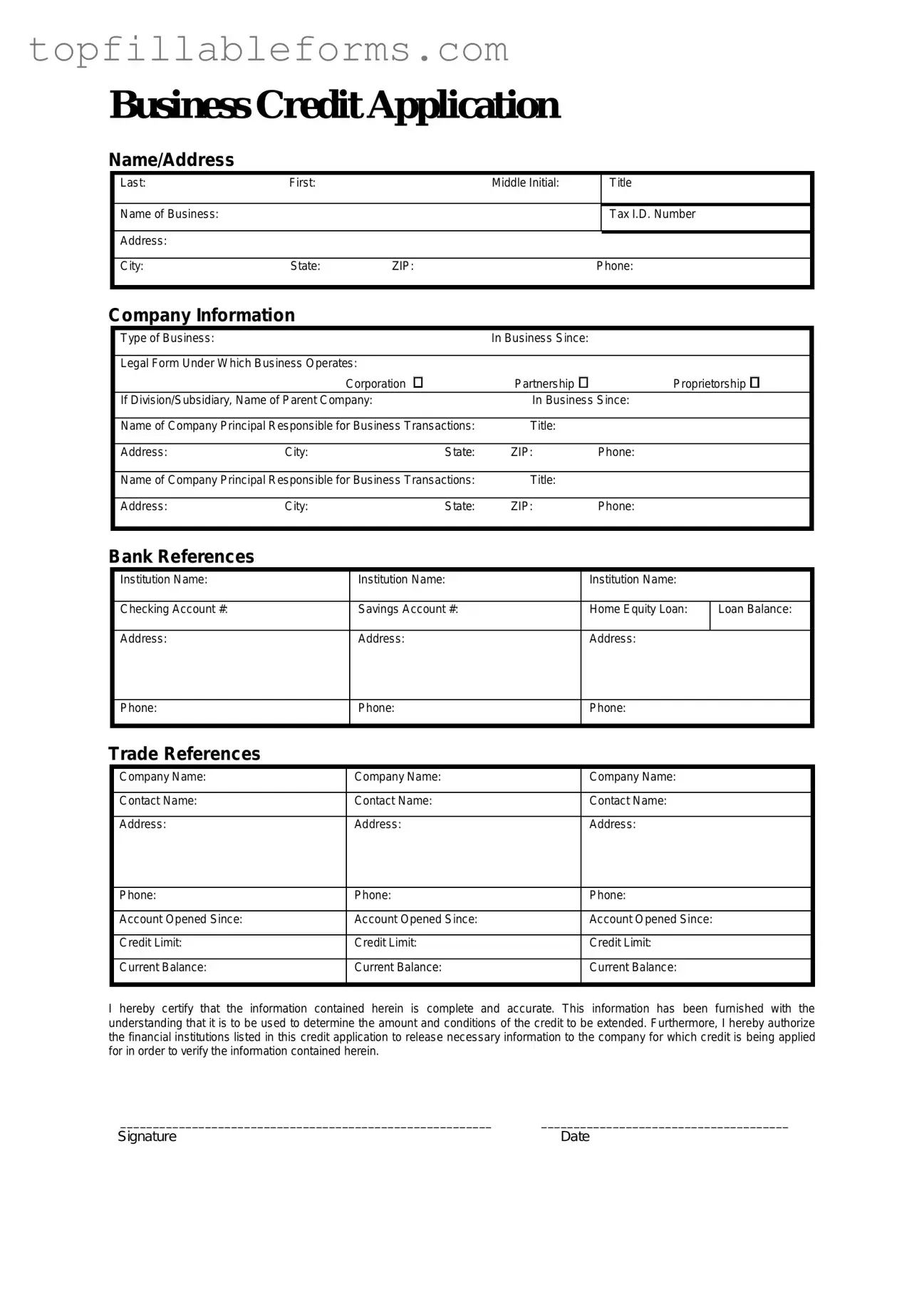Printable Business Credit Application Form in PDF
The Business Credit Application form is a crucial document that allows businesses to apply for credit from suppliers or financial institutions. This form collects essential information about the business, including its financial history and creditworthiness. Completing it accurately can significantly impact a company's ability to secure the funding it needs to grow and thrive.
Open Business Credit Application Editor Here

Printable Business Credit Application Form in PDF
Open Business Credit Application Editor Here
Finish the form now and be done
Finish your Business Credit Application online by editing, saving, and downloading fast.
Open Business Credit Application Editor Here
or
▼ PDF File

